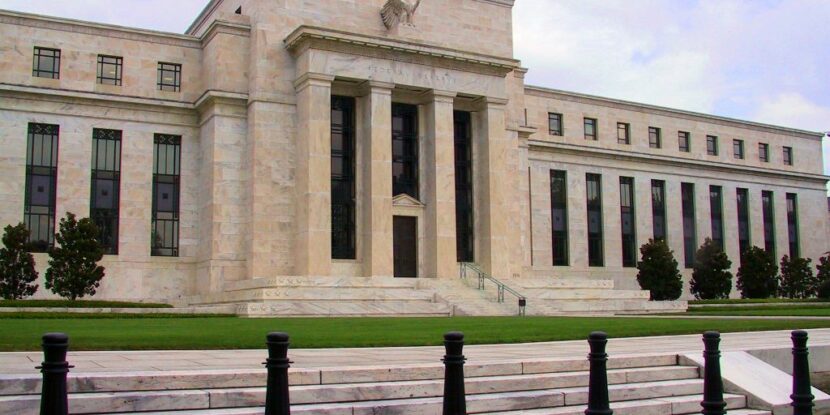Senator Jim DeMint, President of the Heritage Foundation, gave the keynote speech on the second day of APIA’s Jackson Hole Summit Friday. DeMint covered a lot of ground, talking about the damaging effects of bad money and giving a passionate argument in favor of monetary reform. Here are just a few of the points DeMint covered about the battle for equitable prosperity:
1. “When I was a teenager nearly fifty years ago, I valued money based on the things that were important to me. For me, one dollar equaled three beers and a Slim Jim. …Today, however, one dollar will not buy one good IPA, and that has a great deal to do with our monetary policy.”
The devaluation of the dollar has been one of the most visible effects of our lawless monetary policy, and DeMint nails it on the head. Even worse, of course, is that a devalued dollar is considered a healthy thing (to the point that the Federal Reserve deliberately targets it). Too bad Americans’ wages aren’t growing while this goes on…
2. “We all know that there is something seriously wrong when trillions of new dollars are created out of thin air to bail out big banks, stimulate the economy and buy government debt. And something is dangerously wrong when the political and media class are even afraid to discuss it.”
This cuts right to the heart of why the Federal Reserve has been given free rein to abandon the rules that defined it in the past. No one in government or in the media wants to talk about it, so it never enters the public consciousness. People know something’s wrong, they see prices and debt rising, but without robust media coverage, monetary policy has never been fingered as the cause. Hopefully the Summit is the start of a reversal for this trend.
3. “In the 1840s, early libertarian and abolitionist Lysander Spooner was outraged at the high price of US Mail delivery—it cost almost as much to send a letter as to ship a barrel of goods in freight. So he decided to start some competition. He founded the American Letter Mail Company and vastly undercut the high price of stamps.
“…By the time the government had forced Spooner out of business, he had forced them to mark down stamps to 3 cents—and the price didn’t change for the better part of a century. When the Postal Service is finally laid to rest, I think Old Mr. Spooner should be on the last stamp they issue.”
What does the Post Office have to do with monetary policy? A lot, in this case. DeMint was using this story as an example of how when the government really messes things up, citizens can step in and compete with them. Specifically, he pointed to BitCoin and other attempts to replace the dollar as a sign of the growing discontent with US monetary policy. I’m not entirely sold on BitCoin, but it’s an important sign that the longer we wait to fix the dollar, the more people are going to start looking for alternatives.
4. “But it seems to me that the economic problems confronted at this conference, especially the debasement of monetary policy over the last century, are a subset of a larger crisis.”
“…The men who made the mountain we must scale weren’t just John Maynard Keynes and John Kenneth Galbraith. Long before them, there was Auguste Comte and others who preached the supremacy of a managerial elite.”
“There was John Dewey, whose disciples continue to indoctrinate America’s future teachers in his anything-goes relativism at our great universities. And of course, there was the team of Marx and Engels, who knew that the economic liberty of individuals was based upon the bourgeois family order.”
“To destroy the former, they set out to destroy the latter.”
This quote is a bit lengthy, but what it essentially comes down to is “we’re all in this together.” DeMint notes that there are several separate problems hurting our economy, and they aren’t all strictly economic. The breakup of the family, in particular, has done more to hurt the economic prospects of Americans than a lot of taxes. DeMint goes on to note the importance of conservatives not fighting among themselves. “Anyone who tackles the mountain, from whatever angle, should be considered an ally.”
5. “For decades, anyone who thought that our currency should reflect more than a fiat value was dismissed as a hack. Anyone who proposed that the ultimate arbiters of our economy should be the American people (via their public buying and selling) rather than a select few meeting behind closed doors, was labeled a conspiracy theorist. Anyone who suggested the same competition that exists between the products we buy could also exist in the monies we use to buy them was called naïve.
Well, guess what? The shortsighted slanderers were wrong. And you, the persistent, clear-eyed visionaries, were right,”
There’s no real surprise to this last point, but it’s worth noting. Proponents of monetary reform have been ridiculed for decades, but now, in this moment, monetary reform is being grudgingly put forward, in both political and academic circles, as the only real way to permanently fix deep-seated problems with growth and prosperity. In other words, they were right.
Nick Arnold is a researcher for American Principles In Action


